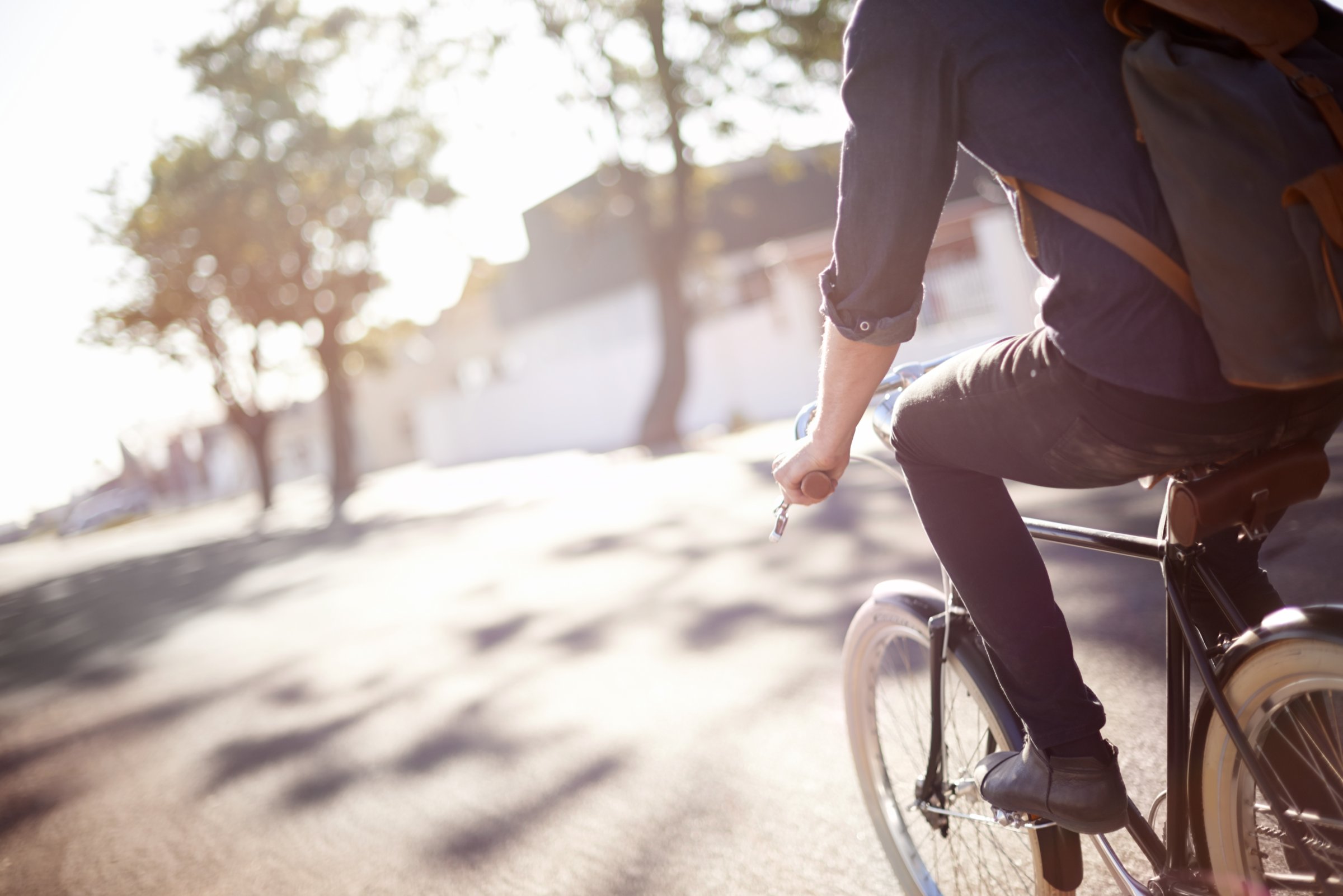
Commuting to work by bike can help you start your day with less stress, new research suggests, and the benefit may have lasting effects through the afternoon and evening.
The three authors of the new study, which was published in the International Journal of Workplace Health Management, all bike to work and wanted to see if they could find empirical evidence for what they personally knew to be true: that a morning bike ride can boost people’s moods and reduce their stress.
“We were discussing amongst ourselves the good feeling we’d get every time we rode our bikes to work,” says Stéphane Brutus, professor of motivation and employee performance at Concordia University in Canada. “Anecdotally, we felt like we were a step ahead, first thing in the morning, of the rest of our coworkers who insisted on taking cars or public transportation.”
The researchers surveyed 123 employees at an information technology company in Montreal, considered one of the most bike-friendly cities in the world. Everyone filled out a questionnaire just after the workday began and rated their mood at the start of the day, their commute-related stress and their subjective vitality—a measure of wellbeing, physical health and energy levels. They also indicated what type of transportation they had taken that day.
Overall, 54 had arrived to work in cars, 42 had taken public transportation and 25 had ridden bicycles. Two had ridden motorcycles, but they were excluded from analysis due to a small sample size.
The researchers controlled for vitality, since they assumed that healthy, active people would be more likely to bike to work and also to report better moods and less stress. Even with this adjustment, though, they found a significant difference in stress levels between the three commuter groups. On a five-point scale, with 5 being the most stress, averages for each group were 2.54 for car drivers, 2.25 for public-transportation users and 2.18 for cyclists.
The finding suggests that cycling can help commuters start their day on the right foot, says Brutus. That’s important, because previous research has shown that people’s early-morning stress level can be a strong predictor of how the rest of their day turns out. Other research backs up additional benefits of a healthy commute. A large 2017 study showed that people who walked or biked to work were less likely to die during the five-year study period than those who took public transit—even if they just biked part of the way.
MORE: Why You Should Rethink Your Spinning Obsession
In this study, however, the researchers did not find major differences in mood between the three groups. “The data was pointing in the right direction, but the results weren’t significant,” says Brutus. He thinks this was because of the relatively small number of cyclists in the study, compared to the other groups. “With more statistical power, it is my guess that we would have found an effect.”
Brutus points out that the study was not able to show a cause-and-effect relationship between biking and lower stress levels and that stress tends to be more consistent, day-to-day, than mood. Even though they controlled for vitality, he says, other factors could have still played a role in the results.
“People decide to drive to work or cycle to work for all different reasons, including their physical shape, how they perceive risks and how they perceive life,” he says. “If you choose to drive a car, for example, you may be the type of person who gets stressed more easily and who can’t afford to bike to work because you need to get to work earlier.”
Cycling to work isn’t practical or possible for everyone. But for those who do have the option, Brutus recommends giving it a try and seeing if it has an effect on their mood or stress levels throughout the day.
“Our relationship with our cars is so ingrained that we don’t even question all the stress and frustration that owning them and driving them can cause,” he says. “We want people to realize there might be a better way.”
More Must-Reads From TIME
- The 100 Most Influential People of 2024
- The Revolution of Yulia Navalnaya
- 6 Compliments That Land Every Time
- What's the Deal With the Bitcoin Halving?
- If You're Dating Right Now , You're Brave: Column
- The AI That Could Heal a Divided Internet
- Fallout Is a Brilliant Model for the Future of Video Game Adaptations
- Want Weekly Recs on What to Watch, Read, and More? Sign Up for Worth Your Time
Contact us at letters@time.com